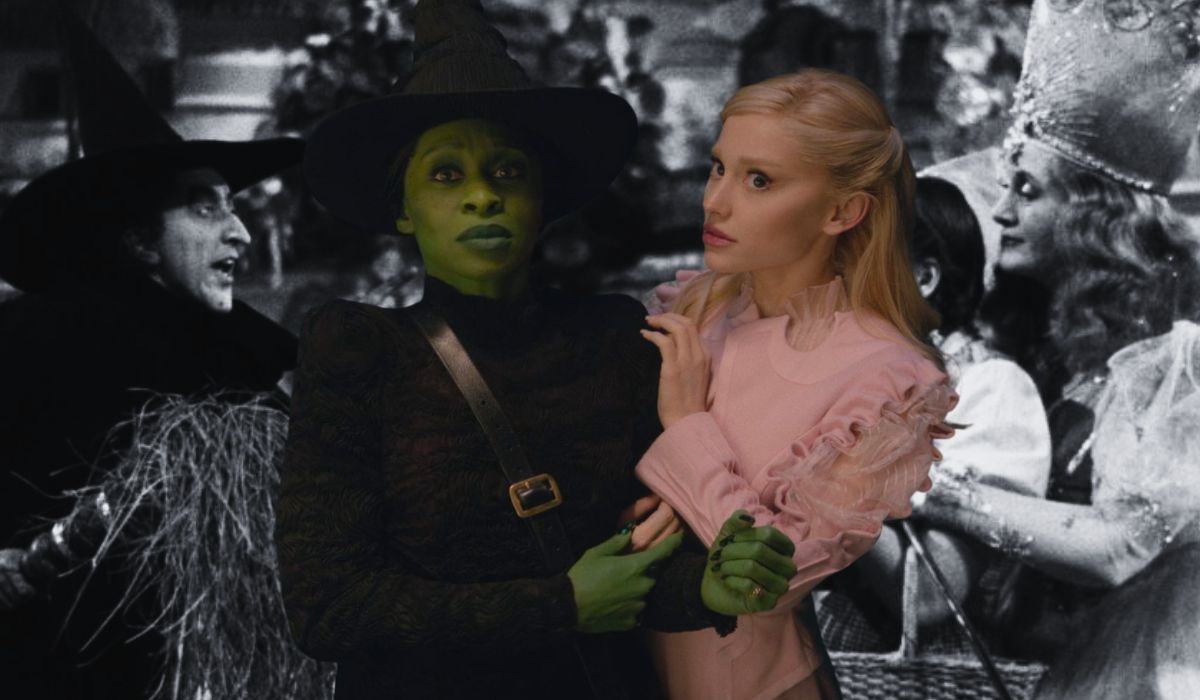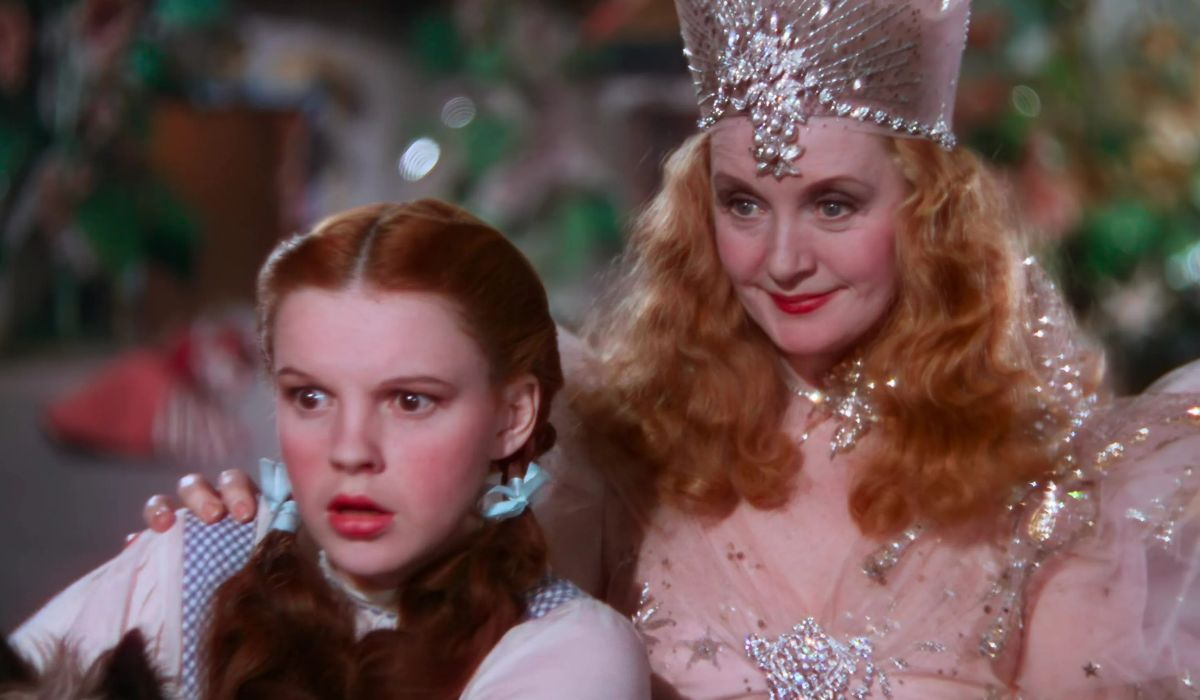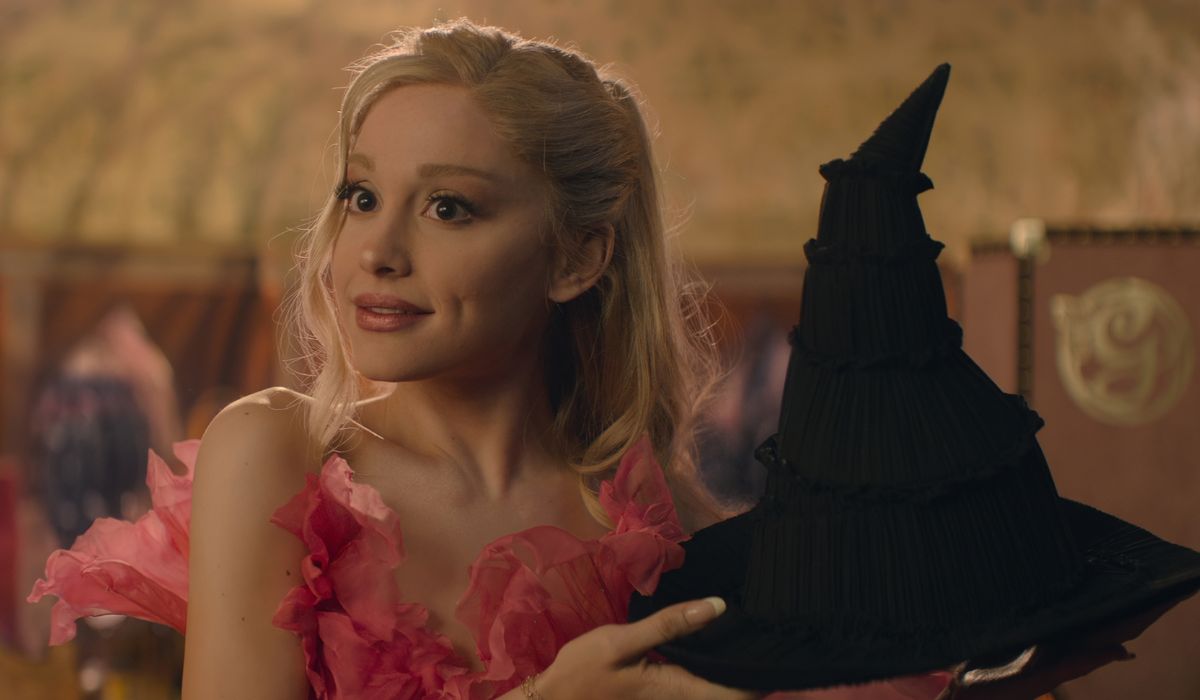
2024 saw the phenomenal success of the movie Wicked, shattering box office records and leaving viewers eagerly anticipating part two – Wicked: For Good. With an ending that sparked countless conversations, this film has certainly left its mark. As a fan of The Wizard of Oz, the origin story of the two legendary witches from the magical Land of Oz offers some intriguing insights into their characters. Although the adaptation, inspired by the musical and Gregory Maguire’s novel, doesn’t strictly adhere to the Oz canon, a compelling theory has emerged that could dramatically alter our understanding of these beloved characters. We’ve always thought of Elphaba as the wicked witch and Glinda as the fairy godmother figure, but after considering this intriguing theory, I find myself questioning everything I once believed.
It’s possible that Glinda was secretly manipulative throughout the story, leading us to believe she was good when in reality, she may have had her own hidden agenda. Could it be that the “good” witch was orchestrating events that we never suspected? Was Dorothy unwittingly drawn into a plot devised by Glinda? Upon rewatching the 1939 classic after the release of Jon M. Chu’s film, I found several suggestive instances in Glinda’s behavior that might have gone unnoticed. This seems like one of those scenarios where a character, such as Elphaba, who fights for justice and is willing to go to great lengths, ends up being labeled the enemy. But let’s remember – the most cunning villains often appear innocent on the surface.
Is Glinda the Real Wicked Witch in The Wizard of Oz?

In the tale of “The Wizard of Oz”, Glinda is believed to aid Dorothy in returning home, but instead, she merely advises the girl to traverse the yellow brick road to find the Wizard, who supposedly holds the key to her return to Kansas. This leaves one questioning why Glinda would send Dorothy to him, given that she’s a witch and could have made things easier by simply giving her the Wicked Witch of the East’s ruby slippers. The Wizard turns out to be an ordinary man who stumbled upon Oz, suggesting he lacked the power to send Dorothy back home. This leads me to ponder why Glinda set Dorothy on this perilous journey. Moreover, by encouraging Dorothy to embark on this adventure, Glinda was essentially placing her in danger, as she is unacquainted with the strange land of Oz and remains a naive young girl.
In the context of The Hero’s Journey, Glinda is expected to play the role of a mentor figure who guides, encourages, and cautions Dorothy as she embarks on her adventure. However, Glinda’s actions in the story do not fully align with this expectation, as she often leaves Dorothy alone instead of providing constant support. Despite this, it could be argued that Glinda still watches over Dorothy from a distance, such as when she saves her from the poppy field. The theory becomes questionable when considering that Glinda sends Dorothy to confront her enemy, Elphaba, rather than dealing with the situation herself. This suggests that Glinda may not have been as supportive and trustworthy as one might expect in this classic storytelling structure.
In addition, Glinda clearly emphasizes that the main character should never remove the ruby slippers, as doing so would leave them vulnerable to the Wicked Witch of the West’s control. However, it raises a question: Would taking off the slippers truly expose Dorothy or somehow compel Elphaba to depart? Given that the green witch desires her magical slippers, which belonged to her sister Nessarose, and if Glinda aims to thwart Elphaba, keeping her focus on Dorothy frequently might be more advantageous. Although the story of The Wizard of Oz is straightforward, it appears that Glinda subtly influences the audience not to scrutinize the true reasons behind her actions.
As I stand by the events unfolding in Oz, I can’t help but question if Glinda knew what was to come when Dorothy met the Wizard. For you see, after Dorothy reached the Wizard, he instructed her to venture to Elphaba’s castle, where she was required to slay the green witch. Given that the Wizard and all of Oz had long sought the elimination of the Wicked Witch, it seems plausible that Glinda was aware of this plan.
Glinda is revered as a virtuous figure, known for her wisdom by the people of Oz. It would be unimaginable for her to compromise her image in such a manner. However, I can’t help but wonder if there’s more to her actions than meets the eye. After all, she bestowed a protective kiss upon Dorothy – but wasn’t that just the tip of the iceberg?
As we recall, Glinda may appear as a fairy, but let us not forget that she is still a witch with the power to cast spells. So why didn’t she simply use her magic to resolve the situation instead of relying on Dorothy, who was asked to commit an act of violence? It makes me ponder whether there might be layers to Glinda’s role in this story that remain hidden to us.
From my point of view, it seems quite plausible that Glinda’s actions stemmed from self-interest, exploiting the protagonist without showing much concern for her wellbeing. The musical Wicked, in particular, clarifies this interpretation for me, as it delves deeper into Glinda’s past and character. Despite their friendship, one may question whether their bond was genuine or merely a superficial appearance.
How Does this Theory Apply in Wicked?

In the tales of “Wicked” and “The Wizard of Oz”, the connections run deep, offering valuable insights into Glinda’s behaviors, particularly her interactions with Elphaba. At the outset of the 2024 adaptation, these two characters are bitter enemies, with Elphaba enduring intense discrimination due to her green complexion. Glinda wields significant influence at Shiz University, a fact emphasized in the song “What Is This Feeling?”, where students swiftly align themselves with her in their rivalry, without much contemplation. Furthermore, it is Glinda who encourages Elphaba to adopt a black hat, which she portrays as fashionable, when in truth, it’s a calculated and deceitful tactic.
Indeed, there’s a redemption storyline for Elphaba in Wicked, but I find it insufficient, particularly when considering The Wizard of Oz. Mostly, everything Elphaba does seems to be a consequence of the events that unfold during the second act of the narrative. It’s only in part 2 of the witches’ tale that we uncover all the background details leading Dorothy to the city of Oz. From the first movie, it’s evident that although Glinda and Fiyero eventually become a couple, he initially develops feelings for Elphaba. To be honest, this is a key factor in my opinion as to why the good witch desires revenge, as she fell instantly in love with the prince and now her “friend” stands in the way.
Indeed, if my admiration for Glinda’s complex character hasn’t already convinced you, allow me to shed some light on her ambitions and jealous tendencies. At the outset of Wicked, it’s clear that Glinda harbors a deep desire to be mentored by Madame Morrible. However, when Elphaba captures the headmistress’s attention at Shiz University, Glinda’s competitive spirit flares up, leading her to bully her rival. A similar instance is with Nessarose, where, although Boq extends a heartfelt invitation to the ball on her behalf, Glinda’s actions reveal hidden motives. She was well aware that Boq yearned to ask her, and she used this opportunity to further her own romantic pursuits with Fiyero – thus taking steps to keep anyone or anything from disrupting their relationship. In essence, the Good Witch of the North is driven by a desire for power and love that often leads her to make calculated moves such as these.
In contrast to the musical “Wicked,” The Wizard of Oz portrays a distinctly different viewpoint, particularly in regard to the characters of Glinda and Elphaba. Whereas in one story, Glinda is presented as a benevolent figure, in the other, it’s Elphaba who takes on that role. The green witch, Elphaba, becomes an advocate for animals and challenges the Wizard as soon as they meet. Conversely, Glinda’s actions often indicate self-interest and prioritizing her own well-being over others, which has significantly altered my perspective of The Wizard of Oz.
Wicked is in theaters now.
Read More
- Masters Toronto 2025: Everything You Need to Know
- We Loved Both of These Classic Sci-Fi Films (But They’re Pretty Much the Same Movie)
- ‘The budget card to beat right now’ — Radeon RX 9060 XT reviews are in, and it looks like a win for AMD
- Forza Horizon 5 Update Available Now, Includes Several PS5-Specific Fixes
- Gold Rate Forecast
- Street Fighter 6 Game-Key Card on Switch 2 is Considered to be a Digital Copy by Capcom
- Valorant Champions 2025: Paris Set to Host Esports’ Premier Event Across Two Iconic Venues
- The Lowdown on Labubu: What to Know About the Viral Toy
- Karate Kid: Legends Hits Important Global Box Office Milestone, Showing Promise Despite 59% RT Score
- Mario Kart World Sold More Than 780,000 Physical Copies in Japan in First Three Days
2025-01-11 21:10